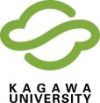Educational Philosophy of the Faculty of Agriculture
Kagawa University Faculty of Agriculture conducts teaching and research to provide an environmentally harmonious, safe, and comfortable local society. The Faculty of Agriculture aims to foster individuals with a rich humanity, an international perspective, and ability to explore various issues in local and international societies. We seek to train talented persons with comprehensive understanding of the science and technology related to the production and utilization of biological resources, who can play an active role in a wide range of industries related to biological science
Diploma Policy (Principles guiding graduation requirements)
The Faculty of Agriculture aims to develop human resources who have a wide range of knowledge and skills related to the production and utilization of biological resources, scientific thinking skills to identify challenges, and communication and judgement skills with an international perspective. Students will gain the ability to handle diverse and wide-ranging problems in society with flexible thinking and to play an important role in the international field through “practical skills of agriculture” by collaborating with others. Graduates with a Bachelor’s of Agriculture from this faculty meet the following criteria:
1. Linguistic Competence
*Presentation and communication skills to understand domestic and foreign information on the production and utilization of biological resources and to give explanation with logical thinking and judgement
*Basic ability to read, write, listen, and speak (communicate) in one or more foreign languages
2. Knowledge and comprehension necessary for 21st century agriculture graduates
* Specialized knowledge and basic skills related to the production and utilization of biological resources based on advanced and comprehensive understanding of applied biological sciences
3. Problem-exploring and -solving skills
*Skills to identify various challenges related to the production and use of biological resources to local and international communities and the ability to play an active role for problem solving
4. Ethics and social responsibility
*The ability to be aware of high ethical perspectives and social responsibility aiming to realize a safe and comfortable society in keeping with nature while promoting the production and utilization of biological resources
5. Regional knowledge and understanding (Community-mindedness)
*The ability to understand the state of their communities from the perspective of the production and utilization of biological resources and harmony with the natural environment
*The fundamental skills necessary to resolve problems in their communities
